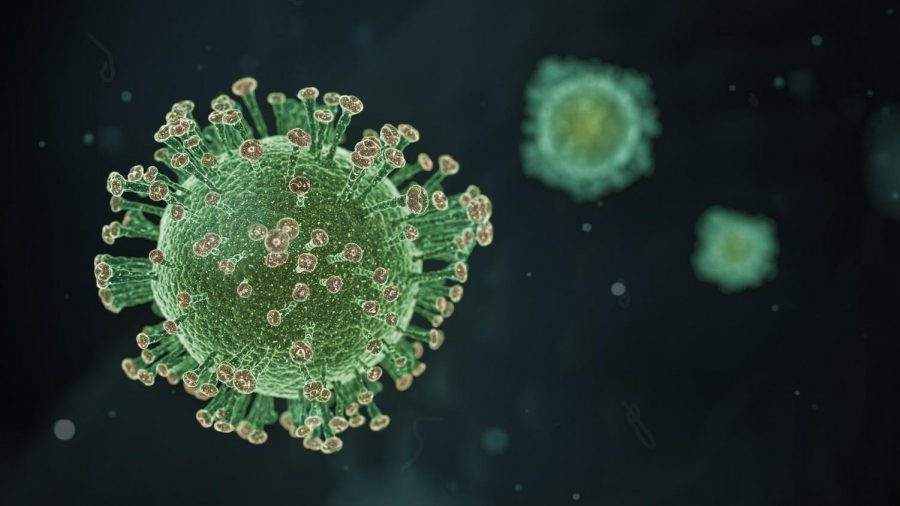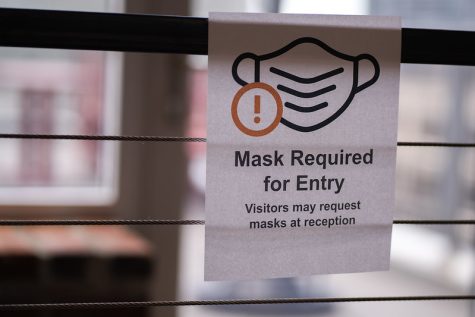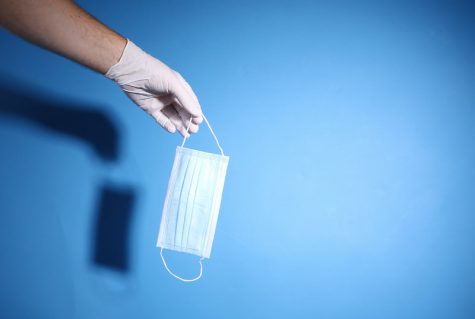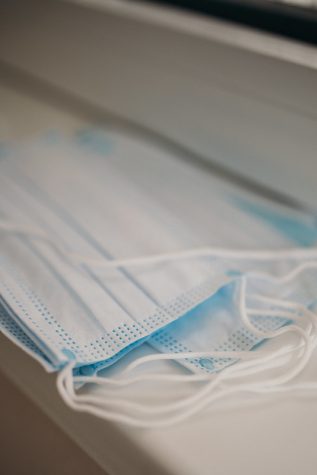COVID-19 is proving to be a very difficult virus to treat
Blood clots present newest obstacle for treatment
Coronavirus (COVID-19) – CG Illustration.
April 28, 2020
Doctors have observed small blood clots developing in patient’s lungs and other major organs and are one reason why COVID-19 is much more deadly than other members of its viral family, according to a CBS News article published on Monday.
Dr. Hooman Poor, a pulmonary and critical care doctor with Mount Sinai Beth Isreal in New York City, suspects these small blood clots are one reason why COVID-19 patients struggle for breath.
“We see not just the possibility of blood clots in the lungs,” Poor said. In COVID-19 patients who require dialysis because of kidney failure, “their catheters are clotting off every second.”
Also according to Dr. Jeanne Marrazzo, professor of infectious diseases with the University of Alabama at Birmingham, these tiny blood clots could also be responsible for one of the unique symptoms of COVID-19, the sudden loss of smell.
Dr. Poor recently treated five critically ill COVID-19 patients that had respiratory failure early in their disease with tPA, a clot bursting drug normally used on stroke patients, and all five showed immediate improvements in their blood oxygen levels but they did not have good outcomes.
“The first patient I gave it to had a dramatic, immediate response, indicating that blood clots were definitely playing a role in why she was so sick at that time,” Poor said.
According to Dr. Poor, more research is needed before regularly treating COVID-19 patients with blood-thinning or clot-busting drugs since it could lead to a “catastrophic bleed”.
“These are both very dangerous medicines,” Poor said.
According to CBS, Dr. Poor and his colleagues suspect the severity of the acute respiratory distress syndrome (ARDS) might be contributed to by the blood clots.
“When you have these abnormalities in oxygen and carbon dioxide with lungs that are not particularly stiff, the first thing that jumps to mind is there’s something wrong with the blood vessels of the lungs,” Poor said.
Dutch researchers found that out of 184 patients in intensive care with COVID-19, only one third had a complication associated with a clot — in their lungs or the legs, or even as severe as a clot-caused stroke or heart attack, according to their report in the April 10 Thrombosis Research.
Dr. Marrazzo contends that lung blood clots usually occur because a large blood clot in the leg– a deep vein thrombosis– breaks free and travels up into the lungs.
The reasons why coronavirus promotes blood clots are up for debate because it isn’t unusual for viruses to promote them. HIV, for example, can produce clotting in patients.
Poor noted that COVID-19 patients have elevated levels of D-Dimer, a small protein fragment produced by blood clots according to the article.
A recent study in the journal Physiological Reviews states that people with already high levels of plasmin, a key enzyme that breaks down blood clots, tend to have more severe COVID-19 infections.
If this is true, then the blood thinners are going to backfire by enhancing the patients’ infection according to the author of the journal Dr. Hong-Long Ji, a professor of cellular and molecular biology at the University of Texas Health Science Center at Tyler.
“If you give the patient plasmin or other kinds of proteins to remove the clots, then the problem is this patient still has a virus in their body and they also have a problem with bleeding in every kind of important organ,” Ji said.












